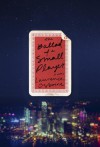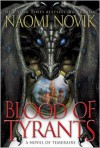SunriseHues
“Since therefore the knowledge and survey of vice is in this world so necessary to the constituting of human virtue, and the scanning of error to the confirmation of truth, how can we more safely, and with less danger, scout into the regions of sin and falsity than by reading all manner of tractates and hearing all manner of reason? And this is the benefit which may be had of books promiscuously read.” -- John Milton, Areopagitica (1644)
Timeline
 A story about time-travel through the multiverse using quantum technology.
A story about time-travel through the multiverse using quantum technology. Robert Doniger, the brilliant but abrasive president of International Technology Corporation (ITC), has invented a new time-travel technology based on quantum physics. With this discovery, people can be squirted into the past and returned to the exact same place, through wormholes in the quantum foam.
In Crichton’s typical style, ITC simply wishes to profit from this new technology regardless of the law. (It seems that, in Crichton’s world, the rapacious, unethical companies headed by avaricious, unscrupulous white men like Doniger always come up with the best ideas or technology.)
Meanwhile, a team of archaeologists led by Edward Johnston, Regius Professor of History at Yale, is studying of the ruins of the village of Castlegard in France. The village and its nearby monastery were the site of the 1357 hanging of Lady Claire, the sister of Arnaut de Cervole, and her martyrdom led to inspire the French to victory in the Hundred Years War.
Johnston gets trapped in 1357 France and leaves a handwritten message in parchment. Doniger needs to bring him back, but only to avoid a public-relations nightmare. So ITC sends Johnston’s graduate students (Kate Erickson, Josh Stern, and François Dontelle), Scottish archaeologist André Marek, and Johnston's son Chris -- all of whom are archaeologists rather than survival experts -- on the rescue mission.
In this novel, although it's impossible to transfer physical items any larger than the scale of the quantum foam from one parallel universe to another, it is possible to strip a large object such as a human being down to its bare minimum information and inject this string of binary code through a wormhole into an incredibly similar yet still different universe, where it will be automatically reassembled. And because some tremendously similar parallel universes haven't progressed quite as far along the timeline as our universe has, we can in effect travel into the past. And it doesn't really matter when we set off as long as your arrival point in the past is correct.
I was initially intrigued by the central idea of the book, which ties together elements of time travel, medieval knights and castles, fighting, and suspense.
The first 1/3 of the novel is slow, and the action doesn't pick up until the gang of archaeologists show up in 1357 France. The bulk of this novel is stuffed with relentlessly tedious adventures that seem more fitting for a multiple-choice game.
Crichton spices up the story-telling with his usual "weapon of mass distraction" -- scientific jargon and high-tech toys -- but he does clarify the "spookiness" of quantum physics enough for the general reader with little or no scientific background (although some of his arbitrary time-travel rules may not be scientifically plausible).
His description of 14th-century France is lacking -- it hardly exudes any historical French ambiance or conveys any complexity and tension to historical events during the bloody Hundred Years War between England and France.
The characters appear to be crudely constructed and mono-dimensional. Marek, Hughes and Erickson are given only the bare minimum traits (The Hot Dog, The Chicken, The Athlete). Johnston is just the Professor. And Doniger is the Evil Billionaire. There is no depth or complexity to their personalities. Bad guys are just ruthlessly bad.
Also, the dialogues feel powerless, and the text a little flat-footed.
The ending feels rushed, unsatisfying, monotonous, and perhaps even predictable. The plot makes a 180-degree turn in the very last minute for the good guys who repair the device just in time to send the bad guys back. And then the two compassionate couples live happily ever after.
I somehow got the vague impression that Crichton wrote this book just so a blockbuster movie would be made based on it! (Yet the 2003 movie adaption by Richard Donner didn't earn a high rating.)
Currently reading
The Ballad of a Small Player: A Novel
Progress:
91/272 pages
The Wet And The Dry: A Drinker's Journey
Echo: The Complete Edition
Blood of Tyrants
The Night Circus
Brideshead Revisited
The Professor and the Siren (New York Review Books Classics)
What Matters Most is How Well You Walk Through the Fire
The Muslims Are Coming!: Islamophobia, Extremism, and the Domestic War on Terror
The Exploits and Adventures of Brigadier Gerard













